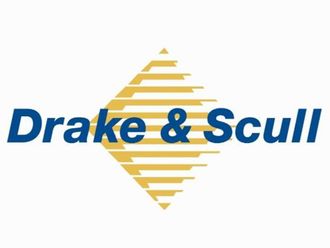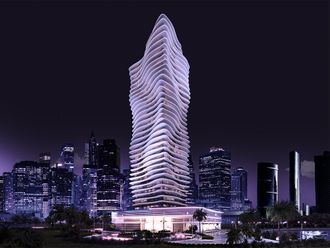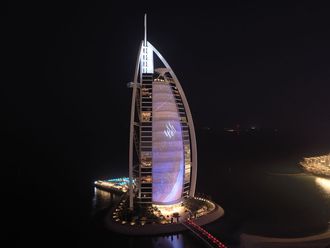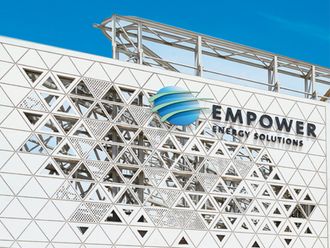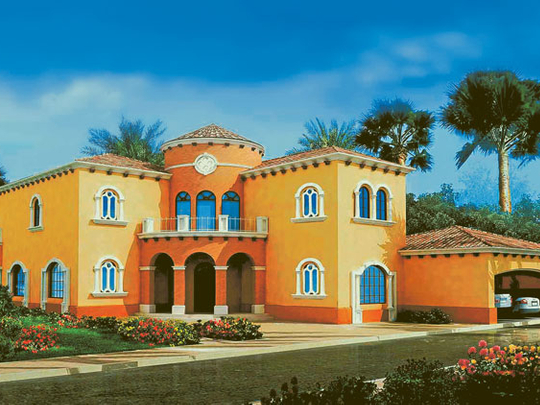
In light of the UAE’s attractive reputation as a safe haven, recent developments suggest that overseas interest in the country’s real estate market is set to become more structured and organised. The property market, which has seen a steady flow of capital from countries such as Syria, Egypt, Iran and Pakistan over the years, is now attracting institutional buyers from even further afield, analysts say. On home ground, this is being matched by many banks reintroducing mortgage offers to non-residents, with checks and balances that include tie-ups with reputed real estate developers.
“We have, for the first time, seen institutional buyers from the Asia-Pacific region specifically allocating funds for commercial investment,” says Nick Maclean, Managing Director, CBRE Middle East
“This demand is largely unfulfilled, given the lack of income-producing assets available in the marketplace, and it is therefore likely that this demand will ultimately evolve into financing structures for future development or infrastructural projects.”
Non-GCC Arab buyers and renters, he says, are much more important today than they were before, and the price point at which they are entering the market is also higher, indicating a more different, more affluent type of interest.
“Within the commercial sector, international corporate occupiers, who have been so important for the absorption of grade A-accommodation, have made a strong comeback. Today, however, their decisionmaking process is more measured and they clearly seek out high-quality, well-serviced accommodation that is managed to an international standard,” he says.
At Cityscape Global, the UAE real estate show which begins tomorrow and runs until Thursday, officials expect a big turnout from overseas. Organisers said last year’s exhibition saw more than 25,000 participants from 93 countries, with about a quarter flying in to Dubai to attend the event. Investment in Dubai real estate by non-GCC citizens in 2012 was valued at Dh40 billion — nearly 70 per cent of the total spend in the property sector.
Indian investment
Indians, who have dominated this space ever since freehold was first announced in 2002, still favour purchasing UAE property, despite increased prices as the rupee depreciates.
Helen Tatham, Director of Residential, Knight Frank, says, “Indians are the largest investors in Dubai and always have been historically. There are no indicators that the appetite for investment in the UAE has declined, though they may be looking at their home market as an additional opportunity.”
Knight Frank’s Summer 2013: Dubai Prime Residential Review states that buyer nationalities remain similar to what they were at the market’s peak, with Indians taking first spot. Besides a concurrent rise in the number of GCC and Arab investors, Europeans are also increasingly recognising that the market offers good rental yields and capital value growth.
Banks show confidence
Noor Islamic Bank started to offer home financing to nonresidents for selected off-plan properties in June. Financial institutions such as Rak Bank, Barclays, Tamweel, HSBC and Mashreq have all reintroduced non-resident mortgages, albeit with safeguards in place.
“There are many expats based in the region originating from the subcontinent, Europe, the UK and the US,” says Farhad Irani, Head of Retail Banking Group, Mashreq, which offers mortgages to non-residents and expats working and living in countries surrounding the UAE.
“They feel comfortable here and may want to make Dubai, Abu Dhabi or Sharjah a part of their home stay, either primarily or as a second home for when they retire or evolve in their careers. When property prices are escalating dramatically at 25 or 30 per cent annually and the interest rate is 5-6 per cent, it makes a lot of economic sense for the individual. We discovered early on that we have a very good profile of customers in Qatar, Egypt, Europe, India and Pakistan who would like a piece of Dubai,” he adds.
Major UAE developers hold regular road shows to attract buyers, often with bank tie-ups in place. In August, Nakheel and Mashreq struck a deal to provide mortgages for investors buying homes at Jumeirah Park. Meanwhile, Noor Islamic Bank has partnered with Emaar to offer off-plan mortgages to non-UAE residents on the back of roadshows through the GCC, the UK, India and Singapore.
Non-resident loans come with more checks and balances. Often banks will specify that such mortgages are only for salaried individuals, and they tend to have a lower loan-to-value ratio. Mortgage brokers are reporting increased interest from consumers. “As brokers we see a lot of interest from non-residents in taking up mortgage finance in Dubai, and this behaviour is getting stronger as many banks are entering this niche market,” says Yasir Durrani, Head of Business Development, Creditzone, a UAE-based mortgage brokerage company.
Overseas buyers are attracted by rental yields of 4-6 per cent, which compare well with other countries. The sentiment that the market has not peaked yet, in spite of strong growth, is also encouraging, even as other destinations grow attractive.


